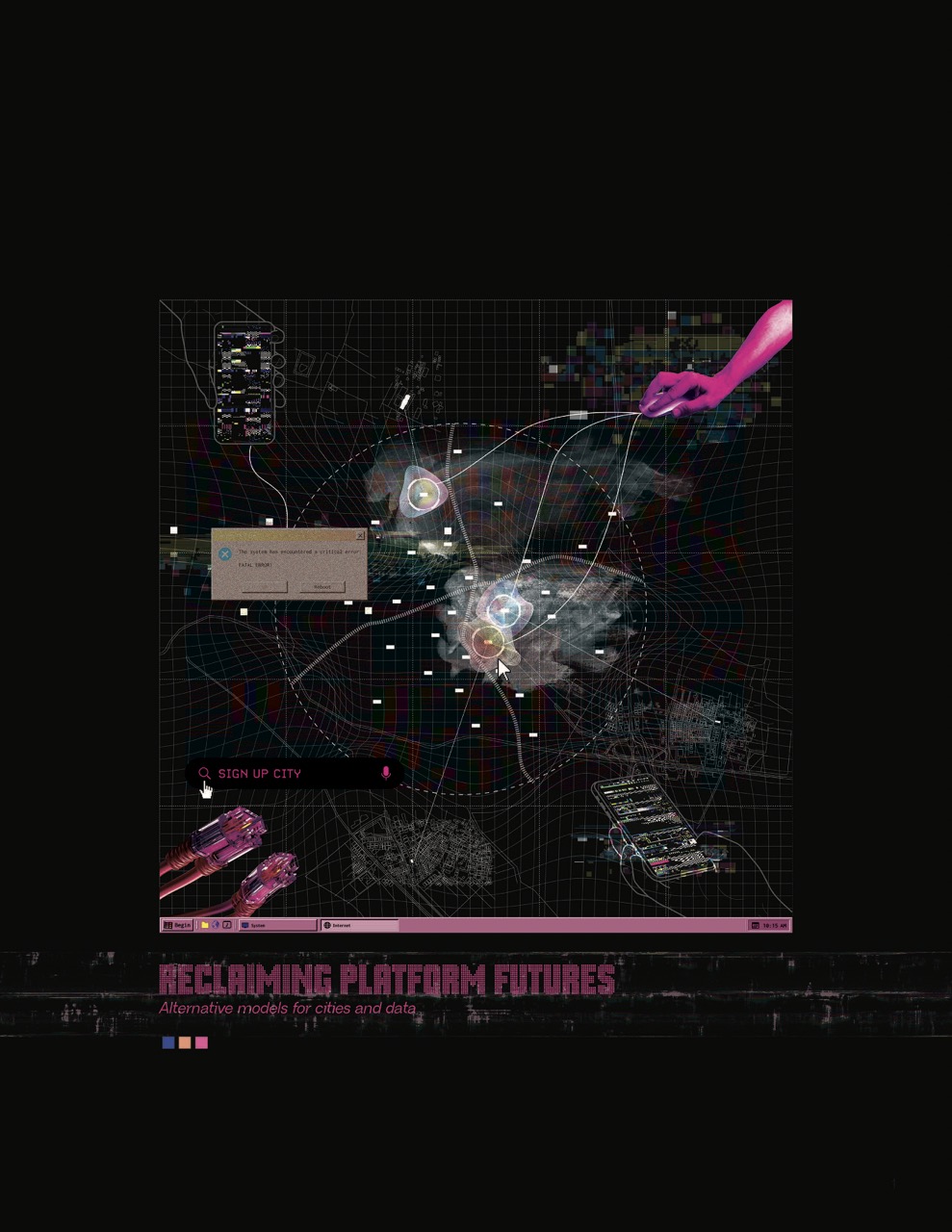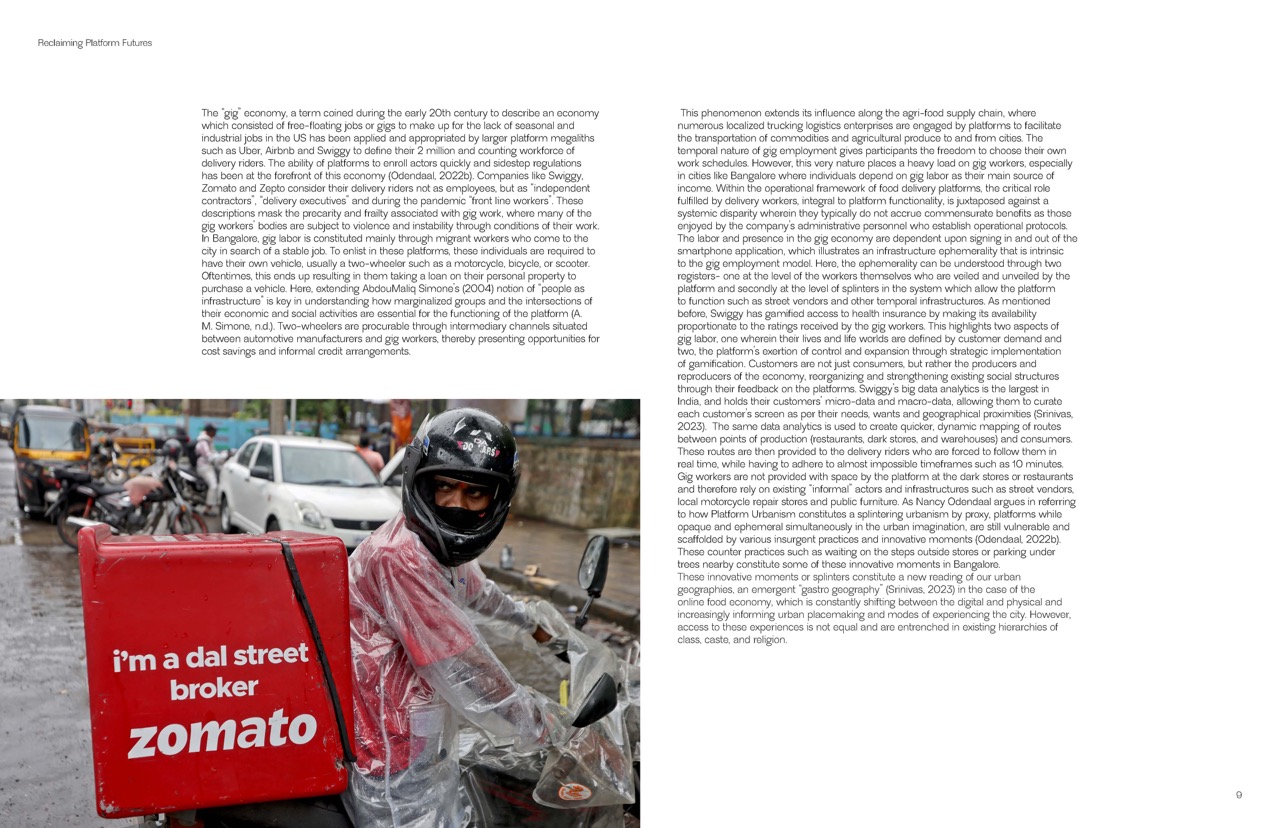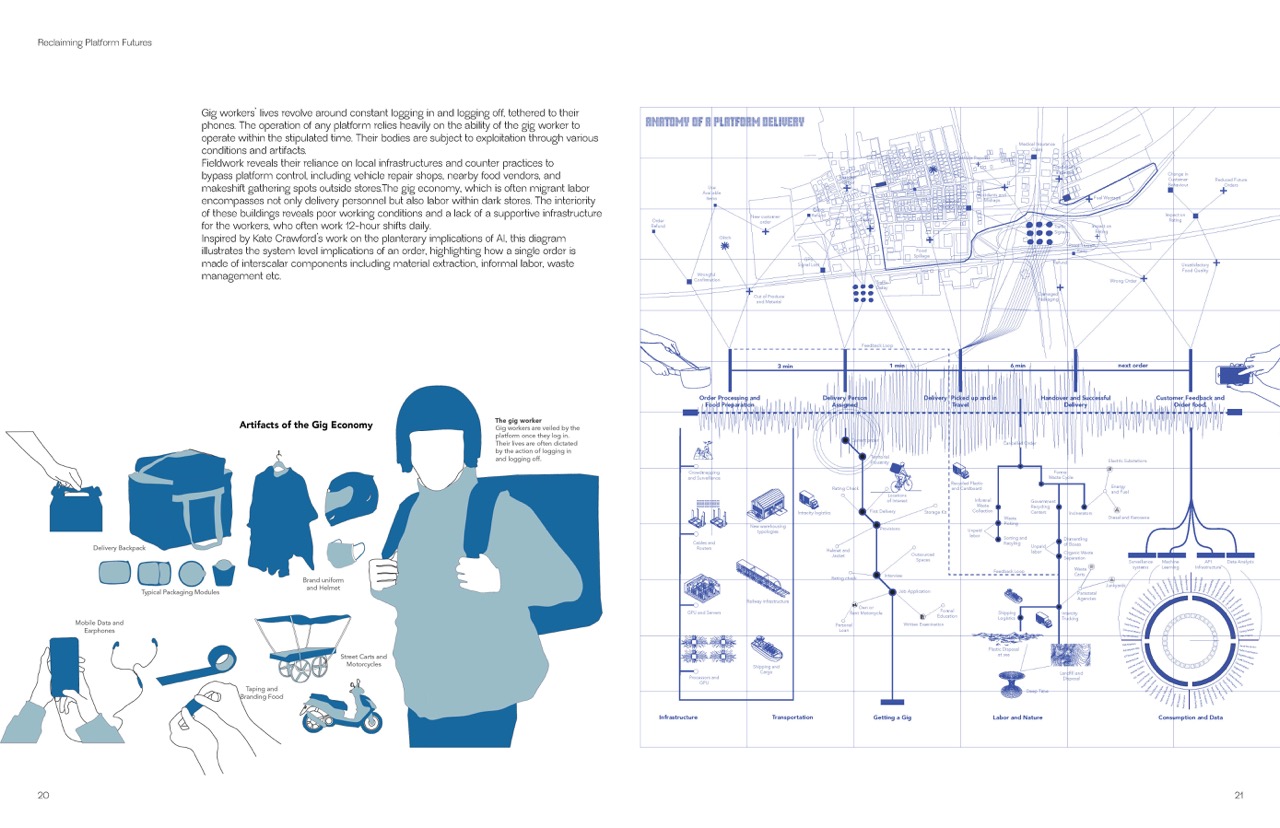Reclaiming Platform Futures – Alternative Models for cities and data
Koushik Srinath (2024)
Reclaiming Platform Futures explores the pervasive influence of digital platforms on urban landscapes, particularly focusing on the case study of Bangalore, India. In the last decade, cities worldwide have been increasingly reshaped by digital platforms such as Uber Eats, Instacart and AirBnb. Platform Urbanism, which is a key framework for my thesis, is a field of research which investigates the ways in which digital platforms play a central role in the governance and spatial configurations of cities. This project explores the various, multiscalar impacts and technological disruptions of platform urbanism by exploring and expanding ways in which app-based convenience has resulted in changes in the ways cities operate and propose alternative futures for platform governance.

Digital platforms such as Swiggy and Zomato operate at multiple registers, interfacing with various facets of urban life and social structures. At the forefront, these platforms serve as intermediaries between consumers and service providers, facilitating transactions within the online food economy. At this operational level, they mediate the exchange of goods and services, employing algorithms and user ratings to optimize efficiency and customer satisfaction. Simultaneously, these platforms also embed themselves within the socio-cultural fabric of cities through shifting cultural perceptions around consumption and in turn, are influenced by prevailing social norms and practices. By employing data scraping techniques and fieldwork, the project elucidates the intricate relationships between platforms, data, and labor. It sheds light on the exploitation of gig workers and the spatial reconfigurations induced by dark architectures, such as micro-warehouses and cloud kitchens. Moreover, it exposes the ecological and social ramifications of the “city on demand” model, including excessive food waste and community displacement.

Proposing a transformative vision for platform governance, the project advocates for worker-owned platform cooperatives and decentralized food networks. It envisions a future where platforms serve the needs of local communities while fostering equitable access and sustainability. Through spatial interventions and community engagement, the project endeavors to reclaim agency in the face of platform monopolies and forge pathways towards a more inclusive and liberated urban future.
This project was made possible with support from FRFF Grant #2024-023. Additional images can be found here.
